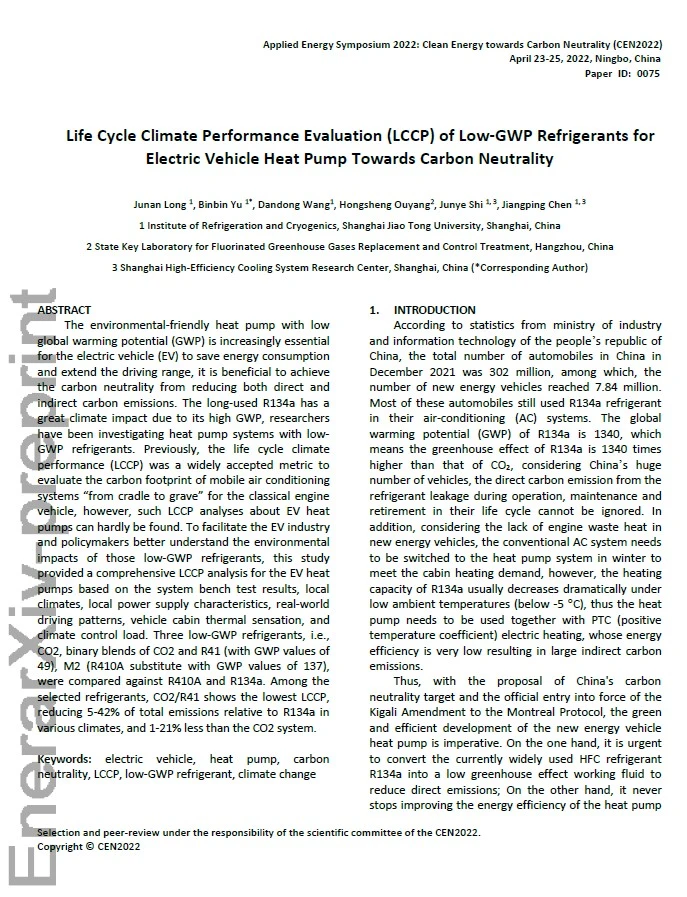Автор: Junan Long, Binbin Yu, Dandong Wang, Hongsheng Ouyang и др.
Год: 2022Язык: АнглийскийТип: Статьи
The environmental-friendly heat pump with low global warming potential (GWP) is increasingly essential for the electric vehicle (EV) to save energy consumption and extend the driving range, it is beneficial to achieve the carbon neutrality from reducing both direct and indirect carbon emissions. The long-used R134a has a great climate impact due to its high GWP, researchers have been investigating heat pump systems with low-GWP refrigerants. Previously, the life cycle climate performance (LCCP) was a widely accepted metric to evaluate the carbon footprint of mobile air conditioning systems “from cradle to grave” for the classical engine vehicle, however, such LCCP analyses about EV heat pumps can hardly be found. To facilitate the EV industry and policymakers better understand the environmental impacts of those low-GWP refrigerants, this studyprovided a comprehensive LCCP analysis for the EV heat pumps based on the system bench test results, local climates, local power supply characteristics, real-world driving patterns, vehicle cabin thermal sensation, and climate control load. Three low-GWP refrigerants, i.e., CO2, binary blends of CO2 and R41 (with GWP values of 49), M2 (R410A substitute with GWP values of 137), were compared against R410A and R134a. Among the selected refrigerants, CO2/R41 shows the lowest LCCP, reducing 5-42% of total emissions relative to R134a in various climates, and 1-21% less than the CO2 system.















Комментарии
Войдите или зарегистрируйтесь, чтобы оставить комментарий